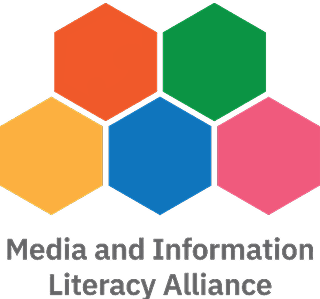About MIL
Learn about media and information literacy and how it empowers students to navigate the digital world with confidence and critical thinking.
What Is Media and Information Literacy?
Media and information literacy (MIL) is the ability to access, understand, evaluate and create information across different formats – from books and newspapers to social media, streaming platforms and AI-generated content.
For children, this means being able to:
- Tell fact from opinion
- Spot misinformation, bias and manipulation
- Understand how and why media is produced
- Use information to make good choices
- Create and share content responsibly
- Develop digital resilience and wellbeing
MIL helps young people become confident, responsible participants in society, not just consumers of information, but critical thinkers and informed citizens. With today’s 12-year-olds set to vote in the next UK general election, the importance of media and information literacy has never been greater.
Joint Statement From First News & MILA
In a world where anyone can publish anything, children are growing up in an environment where information is fast, fragmented... and not always trustworthy. With young people exposed to news, opinions, and online content from an ever-growing range of sources – including those partially or wholly powered by AI - the ability to engage critically with media and information has never been more important; especially now that 16-year-olds are to be given the right to vote...

Why Does MIL Matter?
The information landscape has never been more complex. Children today are surrounded by:
- Social media feeds shaped by algorithms
- AI-generated images, videos and news
- Adverts, influencers and viral trends
- Online health and wellbeing advice – some reliable, some harmful
- A constant flow of opinions, rumours and headlines
Without support, pupils can struggle to separate truth from manipulation, or to understand the impact of what they share. Recent evidence from a First News survey shows the urgency:
- 83% of teachers say MIL is important or very important
- 61% say it is not currently taught at their school
- Only 5% feel very confident teaching it
MIL isn't optional – it's a core skill for life. By embedding it in the curriculum, schools can give pupils the tools they need to stay safe, make informed decisions, and use information positively to shape their futures.
Explore our latest tips and talking points on media and information literacy (MIL) in schools, across the curriculum.




